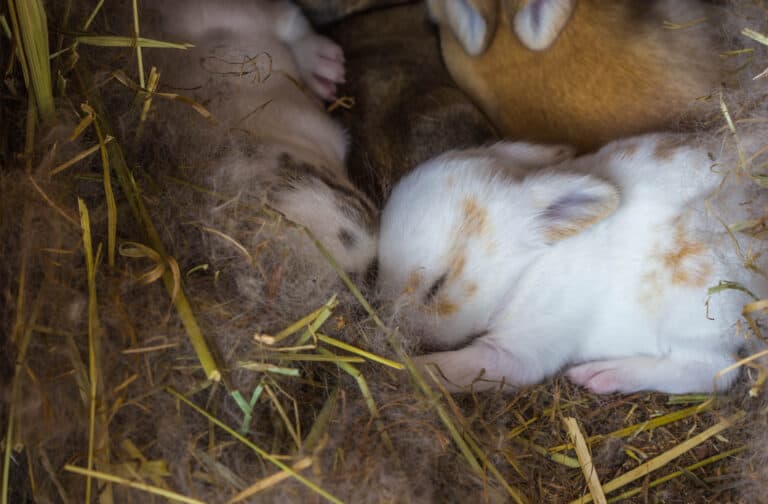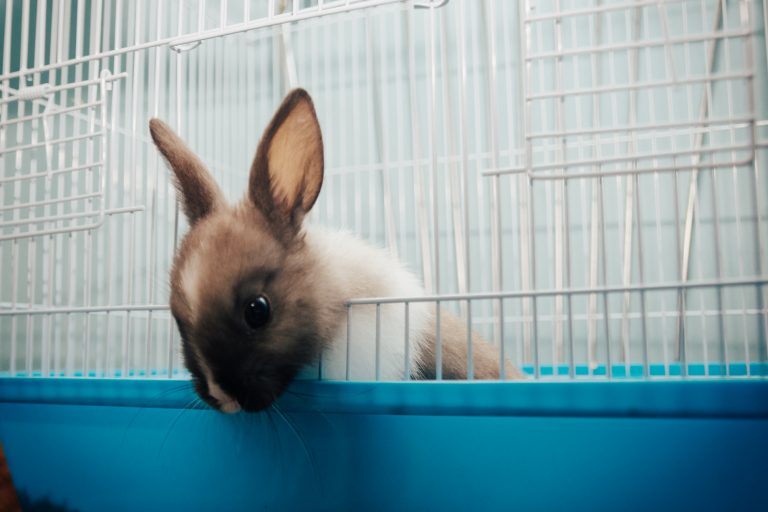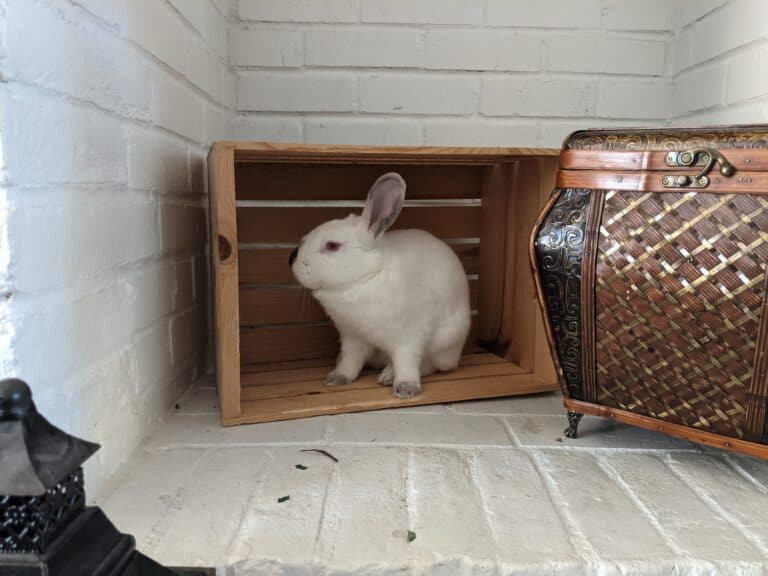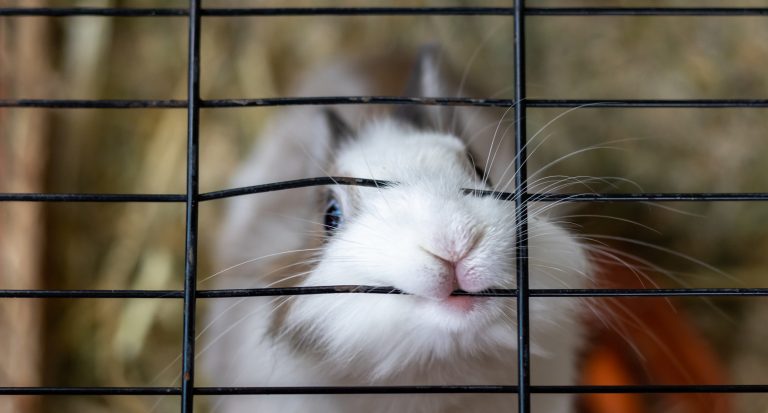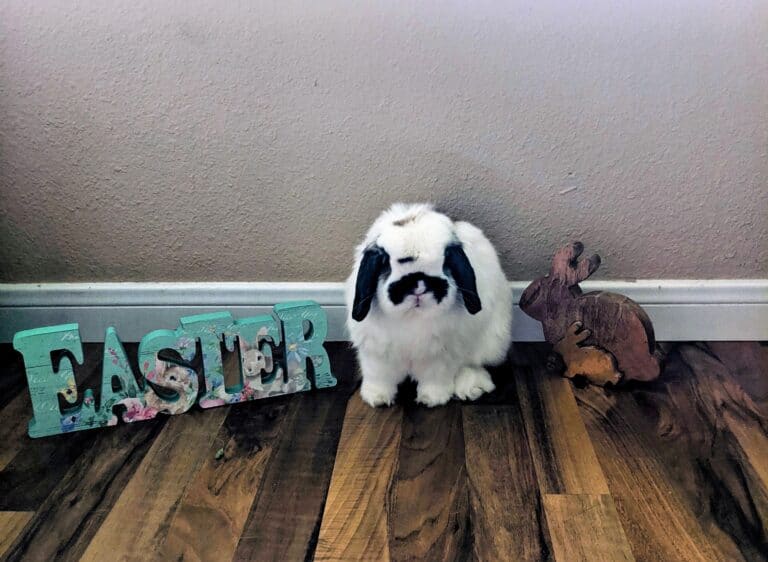Can Rabbits See in the Dark?

Ah, rabbits! These adorable fluffballs have captured many fur a parent’s heart with their looks and sweet nature. But have you ever wondered what lies beneath the cute exterior and what extra prowess they have? For example, can rabbits see in the dark? Can they navigate through the inky blackness like masters of the night, or do they stumble around like humans when the lights go out?
Join us as we explore the captivating world of rabbit vision. Do bunnies possess the ability to navigate in the dark like nocturnal ninjas?
Understanding Rabbit Eyes
Like humans, rabbits use their eyes to see. However, their eye structure isn’t the same as homo sapiens, giving them a few advantages.
First, because their sight organs are located at the sides of the head, they have what we call monocular vision. This means they can see with each eye separately, giving them a wide vision field (all around their head, to be exact). All the better to spot potential predators and yummy snacks from afar, my dear.
Next, the photoreceptors cells in their retinas come in two types: rods and cones. Rods are responsible for detecting movement and seeing in different light conditions. Meanwhile, cones help rabbits perceive colors and details during the day. Your fur baby has fewer cones than you, but he has more rods. As such, he’s partially color blind but can see better in dim light.
Can Rabbits See in the Dark?
Rabbits are crepuscular animals. Being crepuscular simply means that rabbits are most active during the twilight hours, which are the periods of dawn and dusk. So, when the sun is just about to rise or set, your little fuzzball comes to life.
It’s all about survival. During the early morning or late evening, the light is bright enough for rabbits to see potential threats approaching but dark enough to stay hidden from predators.
To give them the advantage over animals that prey on them, nature designed their eyes to see best in dim light. Take note that we said dim, not dark. Their sight organ lacks a tapetum lucidum, a special mirror-like tissue located behind their eyes, kind of like a reflective sheet. As a result, rabbits may see better than you in low light conditions but are as blind as you are in total darkness.
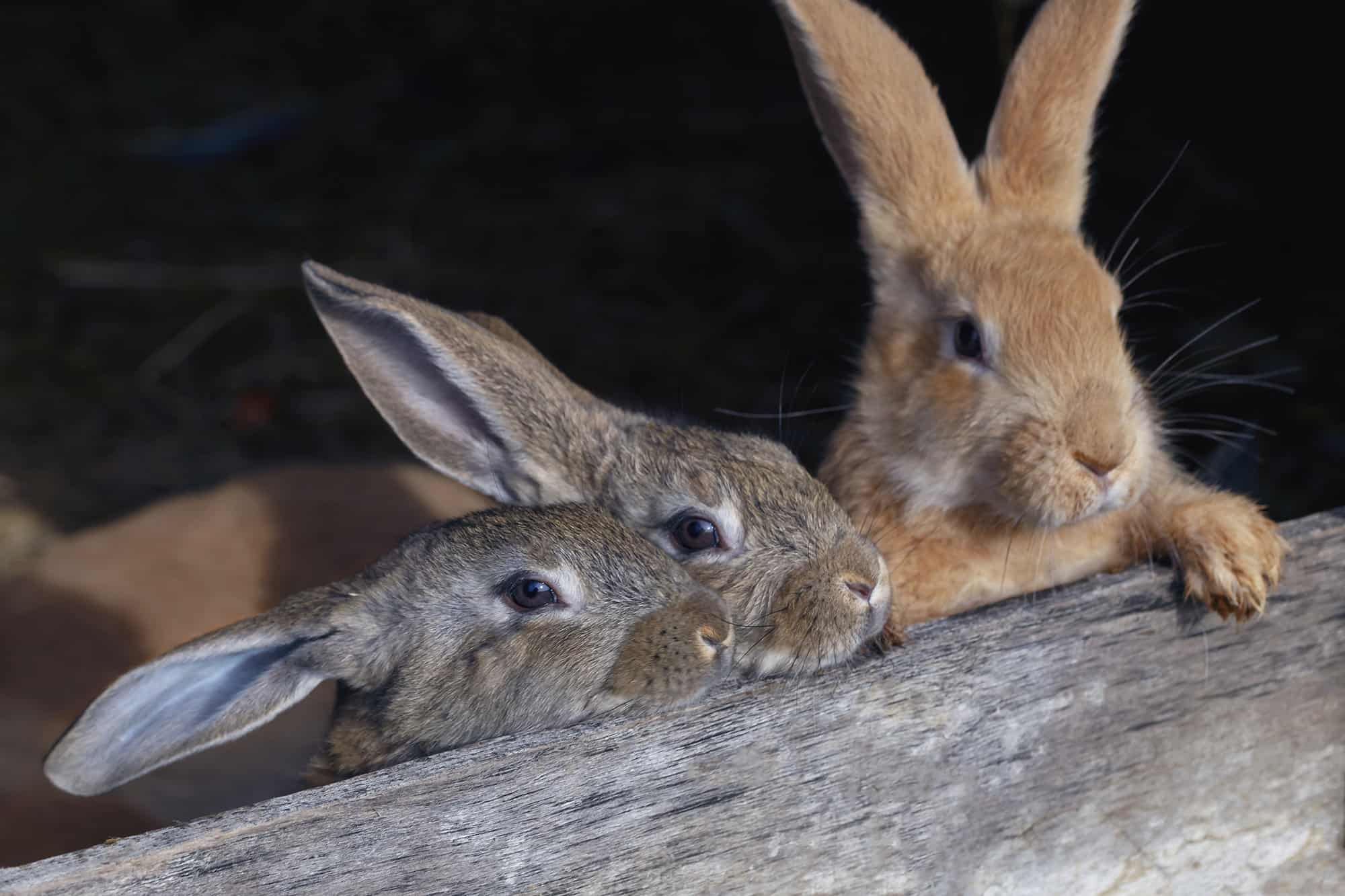
If Rabbits Can’t See in the Dark, Does Nighttime Frighten Them?
Imagine being unable to see even with your eyes open, and you’ll get a good idea of what your fur baby can feel in total darkness. He can hear and smell everything around him but can’t catch even a tiny glimpse of what’s happening. That’s enough to give anyone the heebie-jeebies.
If you keep your bun indoors, he’ll likely be fine. He’s used to his surroundings, so he can navigate quite well, even in the dark. Also, being inside lessens the perceived threat from predators. This means it’s safe to let your fur baby run free in your house if that’s your usual setup.
It’s a different story if your rabbit stays outdoors. For buns who live in outdoor housing, nighttime can be stressful. Being prey animals, they’ll feel anxious in complete darkness. The inability to see potential dangers clearly can contribute to their overall sense of unease.
How to Make Your Rabbit Feel Comfortable in the Dark
Rabbits may be active during dusk and dawn, but they don’t relish being engulfed in total darkness. Fear can make your fur baby disruptive. He may run from you when you return him to his outdoor hutch at night or become destructive out of anxiety.
As such, it’s essential to create a cozy and safe environment for him to feel at ease when the lights go out. Here are some tips on how to help your furry friend remain calm and comfortable in the dark.
Provide Company
Rabbits are social animals. In the wild, they typically live in groups. There’s safety in numbers, so the saying goes, and buns seem to take that to heart. If you can provide a companion for your pet, so much the better. Bonded rabbits will keep each other company and make them feel safe even when darkness falls.
Cover the Rabbit Hutch
Buns can make short work of their cage wire, chewing through it in minutes. That means predators can do the same thing, and rabbits know that. This is why a sturdy hutch cover will come in handy. It acts as a shield against any potential predators or loud noises that might scare your bun, creating a sense of privacy and security.
Make a Burrowing Space
Rabbits instinctively seek shelter when things get a bit scary. That’s why your pet might find a burrowing area appealing. The burrow can make him feel protected from predatory animals and safe from prying eyes. Providing hay can give the burrow the ambiance of an underground tunnel that rabbits live in when they’re in the wild.
Provide Sources of Entertainment
When it’s dark, and things get a bit spooky, having toys to play with gives rabbits something fun and entertaining to focus on. This helps keep fear and anxiety at bay. Moreover, toys provide mental stimulation, which is great for a bunny’s well-being.

Should You Give Your Rabbit a Night Light?
If rabbits feel anxious in complete darkness, leaving a night light on seems like the obvious and most straightforward solution. Opinions on whether this is a good idea vary, but some disadvantages may arise from this practice.
- A contrast of light and dark helps your pet’s body regulate his body clock: This tells his system when to shed fur, mate, and the like. Keeping your bun bathed in light 24/7 can affect his cycles.
- The light could make your pet more active: In natural settings, the changing light conditions signal to rabbits when it’s time to be active or seek shelter. Light stimulates their senses and can increase their energy levels. As such, your bun might think it’s playtime and create a commotion if you turn a night light on.
- The light could wreck your pet’s sleep-wake cycle: Bunnies are hard-wired to be awake during low-light conditions. Thus, placing a night light in your fur baby’s sleeping area can inhibit the production of melatonin, a hormone that regulates sleep and wakefulness. Disturbing his sleep-wake cycle can make it difficult for your pet to fall asleep or stay asleep, leading to sleep deprivation and potential health issues.
- Being bathed in light 24/7 can stress rabbits: Rabbits require a certain amount of darkness and quiet to feel secure and comfortable. So it’s vital to provide your bun with a balanced light-dark cycle to mimic his natural environment. Constant exposure to light can lead to stress, irritability, and other health issues.
Can rabbits see in the dark? Well, rabbits have relatively good vision, especially in low-light conditions. However, in total darkness, they would struggle to see anything at all. So while your fur baby may have superior night vision than you, he still needs to rely on some amount of ambient light to see effectively.
This means that if you let your rabbit roam the house, keep a clear path for him if you turn out all the lights at night. On the other hand, if your bun lives in a hutch, take the necessary steps to make him feel safe when night falls.
More on Rabbit Care
- How Long Do Flemish Rabbits Live: Giant Breed Facts
- Complete Guide to the Best Hay For Rabbits: Reviews & More
- Are Rabbits Rodents? Find Out More About These Small Mammals
- Is Oat Hay Good for Rabbits? Complete Guide to the Best Hay
- Why Do Rabbits Lick You? 11 Reasons for This Common Behavior
We hope you enjoyed this post! If you did, will you give it a share or two 🙂 Thank you! ~from Every Bunny Welcome


